Electronic waste (e-waste) disposal is a problem that has been plaguing global leaders for a long time. Although there have been collective efforts by global innovators, e-waste dumpsites continue to grow. Bulawayo based startup, Brig Labs, has been working towards the goal of changing the culture of e-Waste management and disposal.
Brig Labs is a maker-space that enables ordinary people to tap into their imagination to give electronic waste new life. The startup’s founder, Thamsanqa Mpofu shared with Venture Nation what the startup does.
” Our aim is to reduce the growing burden of e-waste in Africa by bringing together a community of like-minded people to develop products that suit their own needs and that they can commercialise on”.
A Culture of building instead of buying
The startup is building is a maker community that enables people to tap into their curiosity by learning and engaging with like-minded people to create anything from electronic components. The community is hinged on a repair culture, where instead of buying stuff, people build everyday items from discarded components.
“Brig Labs’ goal is to foster a culture of building and not buying, on the continent. We are dedicated to helping makers develop products that solve problems within their communities. Through our community of like-minded people, that find it hard to take the world as it is given to them we repurpose electronic and mechanical components from discarded e-waste.”
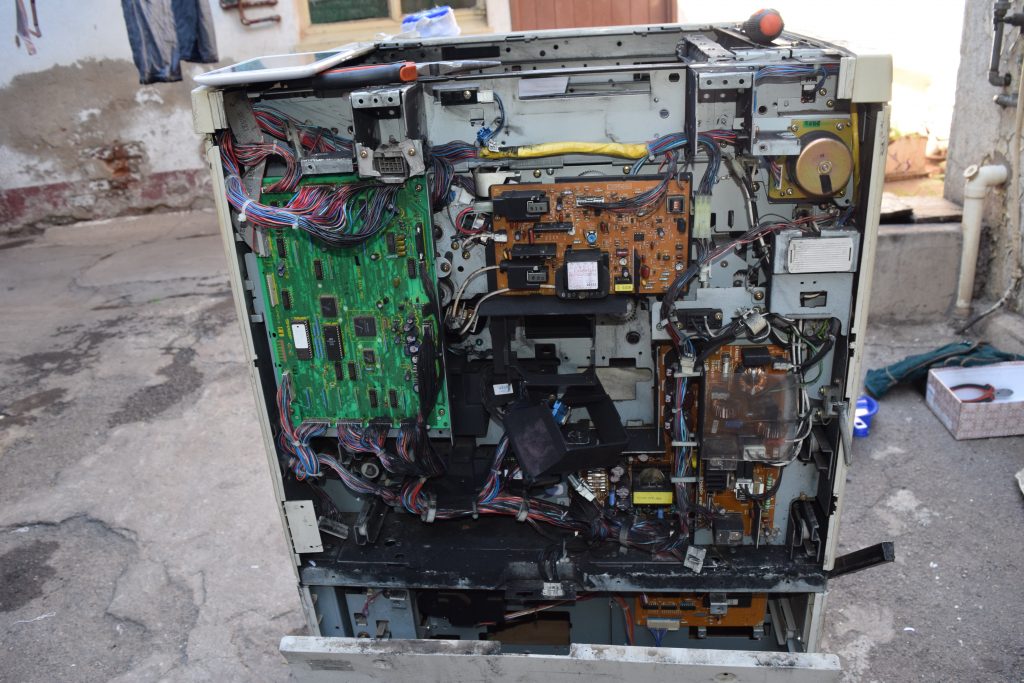
Dismantled office printer 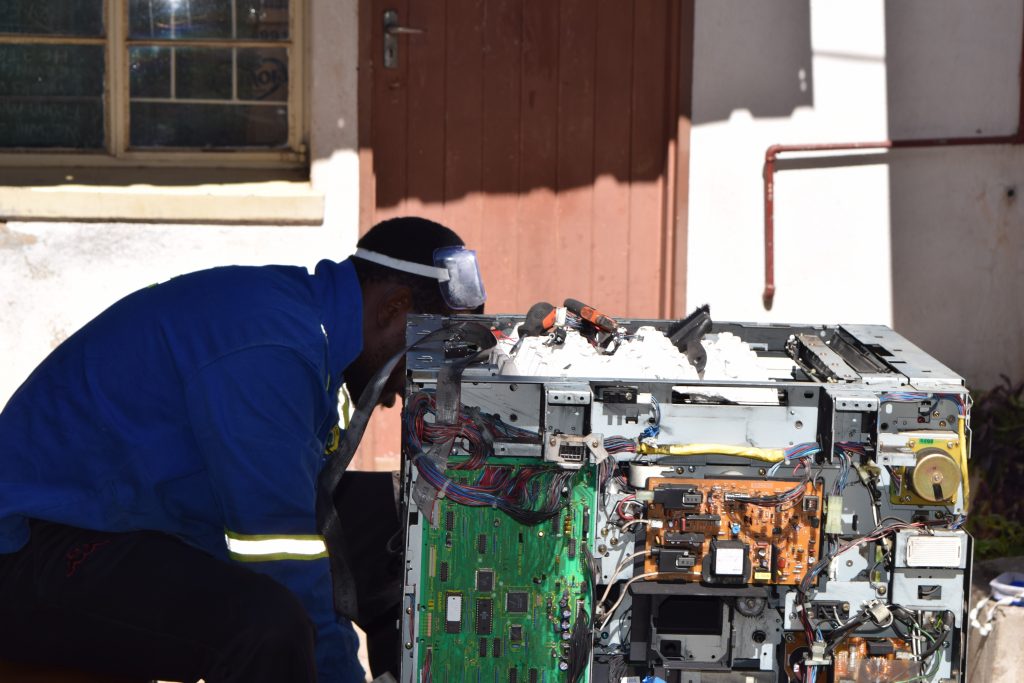
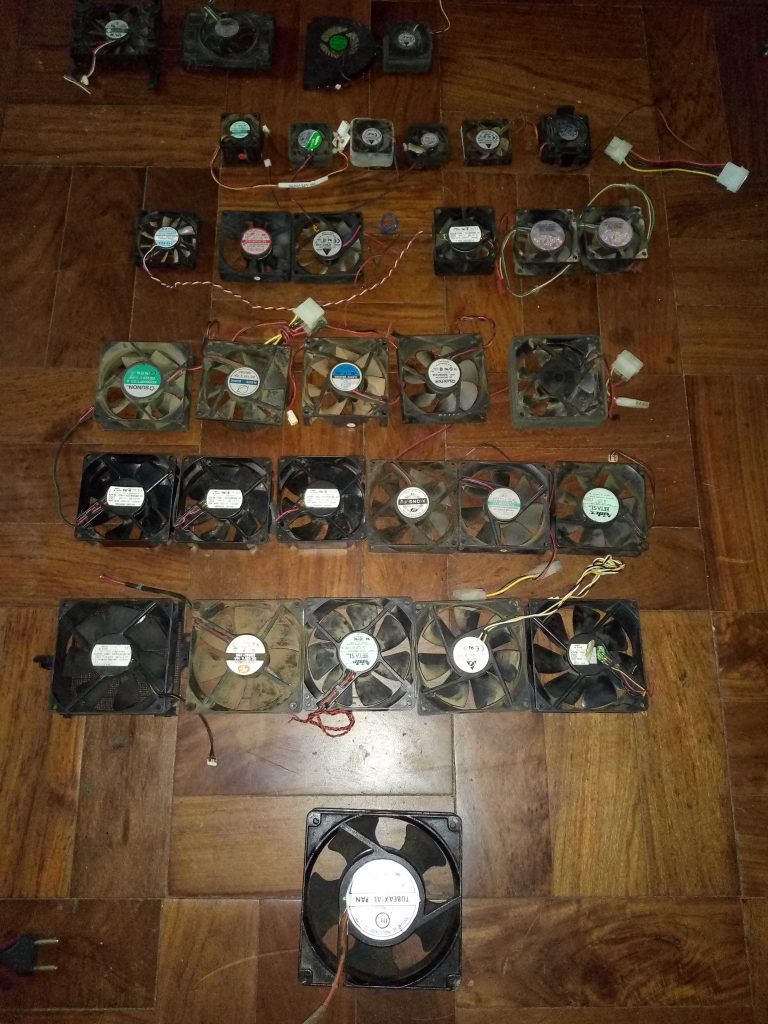
Refurbished cooling fans 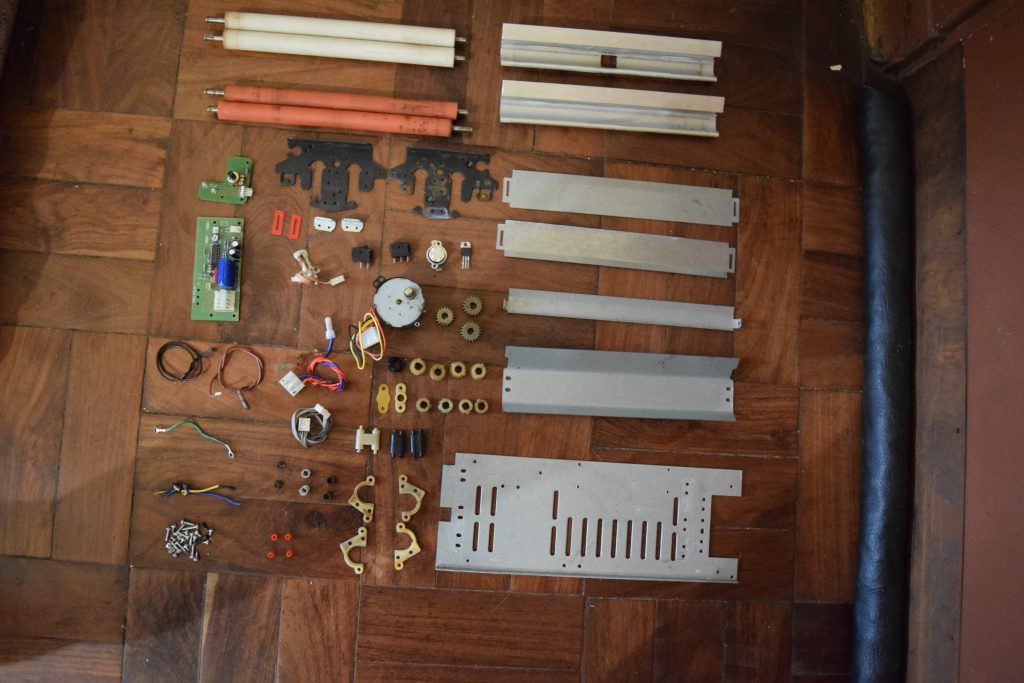
Components sorted and ready for sale
But why does it matter?
The world’s ever-growing reliance on technology has created a surplus in electronic waste. The existing infrastructure in the world’s cities is not designed to keep up with such high demands. As the world marches toward new technologies, Brig Labs is focusing on the sustainable disposal and reclamation of value from the discarded junk.
Disused electronic gadgets are discarded as waste, and because they are not bio-degradable, likely end up in a landfill site. This poses serious health risks as these gadgets contained toxic hazards like mercury. In addition, components that make up most electric gadgets contain, high-value materials like gold, silver, copper, and platinum. E-waste that lies derelict and un-recycled in a landfill, is potential revenue foregone. According to the Global E-Waste Monitor 2020, only 17.4% of the global e-waste was collected in 2019. This left US$57 billion lying on the table.
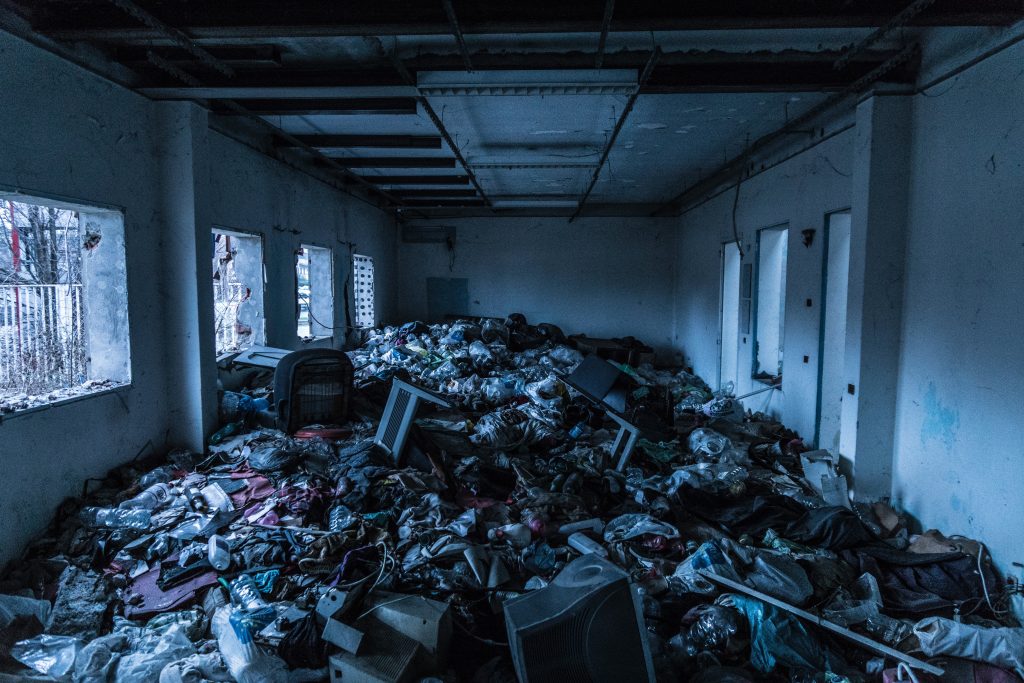
Brig Labs operates in three main ways. They run an online store, build hardware for resale, and run electronics classes. The Brig Labs online store sells refurbished electronic components. These components are collected from old laptops, screens, toasters, fans, etc. These components are sold at a discounted price and are very useful for project prototyping and other DIY projects.
By using these extracted components they cut the cost of building hardware. For example, after tearing apart old laptops, Thamsanqa was able to combine LED screens to create False Window Light Panels. These are ideal to use in windowless rooms, as reading lights as well as natural light for photoshoots.
As part of their efforts to form a culture of building, Brig Labs hosts classes to teach enthusiasts about the basics of making. These classes are for novices who want to get started in the field of electronics. They have an upcoming seminar on “Beginner Basics to Electronics” starting on September 21, 2020. To register for this class, click here.
Electronics and Science Kits For Schools
The startup plans to expand its territory into schools. They are currently working on creating electronics and science kits that can be used in school laboratories. These kits are aimed at assisting the practical component of science and electronics education in Zimbabwe. The kits are also built from e-waste. They hope to instill a culture of upcycling in younger generations from a tender age.
We want to hear from you. If you know anyone working on cool and innovative initiatives, that the world should know about, get in touch with us.
